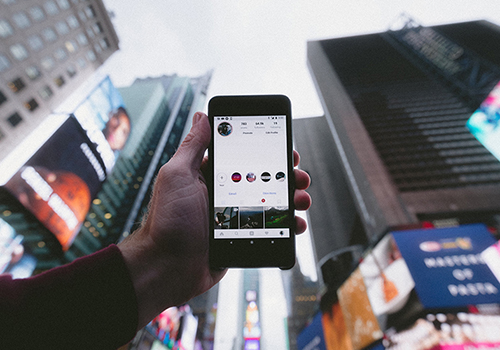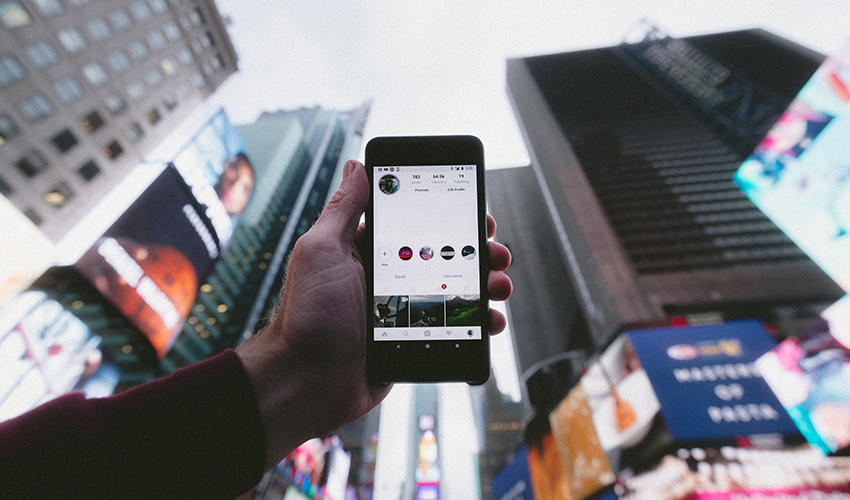Keeping your social media safe

Many of us enjoy documenting our trips on social media, and whilst this is a great way to update friends and family on what you’re up to, it can also be used by criminals to idenfiy who’s house has been left unoccupied. This puts a target over your property, and puts your home and it’s contents at risk.
What’s more, many insurers are now building in exclusions in home insurance polices stating that if you post photos advertising the fact that you’re away, you may not be covered if your house gets burgled!
Even if your policy doesn’t have a specific exclusion, almost all policies will include a ‘duty of care’. This dictates that you must take reasonable precautions to try and prevent a claim. And insurers may take your use of social media advertising your trip as a deliberate dereliction of that duty.
It’s easy however to take steps to prevent this being a significant risk, by simply being cautious about what, and when, you share those holiday snaps.
7 Steps for High-Net Worth Individuals to hide that they are on holiday:
- Don’t post your pics until you get home – photo dump your holiday snaps when you’re back home, and avoid checking in when you arrive at the airport or hotel.
- Keep your profiles private – all social media platforms give you the opportunity to limit your followers. Check your settings to ensure the only people who can see your content are the people you know.
- Turn off Location Services – social media apps may automatically stamp your location on any posts you make. You can turn this off so no-one can tell where you are.
- Check your followers – Have a clear out of anyone that you don’t want following you any more. Run the list and easily remove followers for anyone you don’t recognise, or anyone you don’t want seeing what you’re up to!
- Remove unnecessary personal details – it’s amazing what information about you can crop up online. Look into what you’ve shared, and remove anything that isn’t necessary, or that you don’t want people to know!
- Don’t get tagged – ask any friends or family you’re travelling with to not tag you in posts so they don’t give the game away. You can easily review your settings so that people can’t tag you, or you have to approve tags before they’re public.
- Check your policy – read the small print or contact your insurer to make sure you don’t breach any conditions of your policy.
In addition to preventing criminals using your social media to track and attack your home, if you are travelling this year and leaving your house vacant, event for just a few nights, there are also a number of steps you can take at home to protect your property while you’re away.
4 Steps to deter home intruders:
- Make your home look occupied – criminals look for telltale signs that a house is unoccupied. Things like post piling up behind the door, lights never being turned on or deliveries being left by the door. You could ask a trusted friend or neighbour with a key and ask them to regularly visit to collect post, open & close curtains or move any deliveries. Consider investing in timer plugs so you can programme lights to come off and intervals to make your home look occupied (wi-fi plugs are especially useful as you can time them to come on at different times through the day so it doesn’t get predictable!). Also remember to pause any regular deliveries such as milk or newspapers.
- Check the locks – it might sound obvious, but it’s easy to miss a window or door. Before you leave, go round every entry point on your property, from gates to doors to windows, and make sure they’re all secured. Check any sheds, garages or outbuildings are properly locked, and lock any tools away so that can’t be used to access your home. Many insurance policies will only pay out for burglary where you can evidence forced entry.
- Hide your valuables – Keep valuable items out of sight and locked away if possible. Things such as laptops and tablets are an easy temptation for thieves, so keep them hidden! A fitted safe can also be useful for expensive items such as watches or jewellery, just make sure it’s a secure safe that can’t be removed from the wall or floor, otherwise criminals will steal the whole thing!
- Invest in an alarm system – there are a variety of alarms on the market from traditional systems to more modern smart systems. If possible, choose a monitored system which means that the police can be called by a monitoring centre. And a smart system can give you peace of mind by allowing you to check in on your system from anywhere.
This is by no means an exhaustive lists, and there are many other steps you can take to keep your premises secured, but being mindful of these simple steps will help ensure you don’t run into any trouble that might spoil your holiday!
To learn more about insuring your property, visit our Private Clients page, and talk to our team about our market leading home & contents cover.



